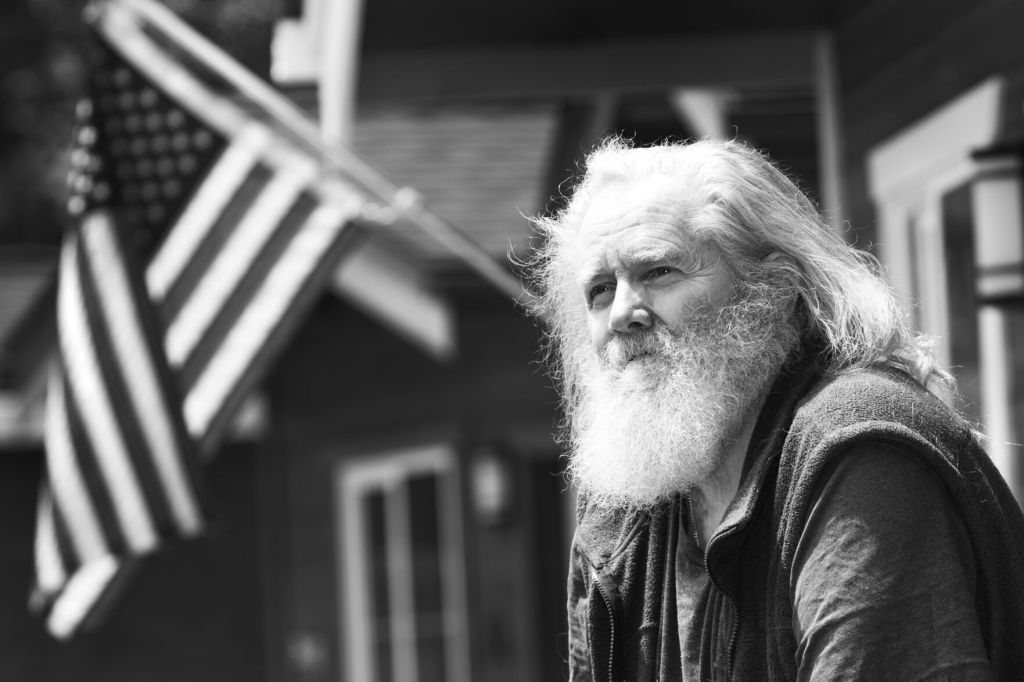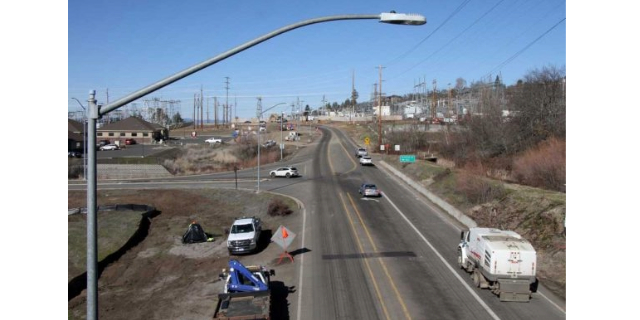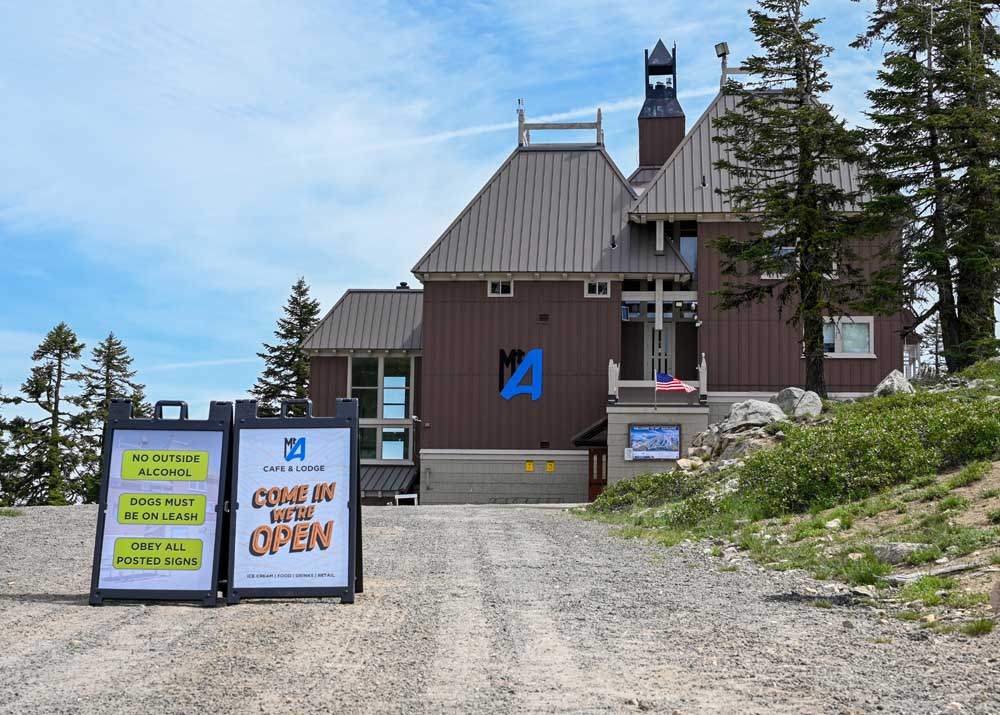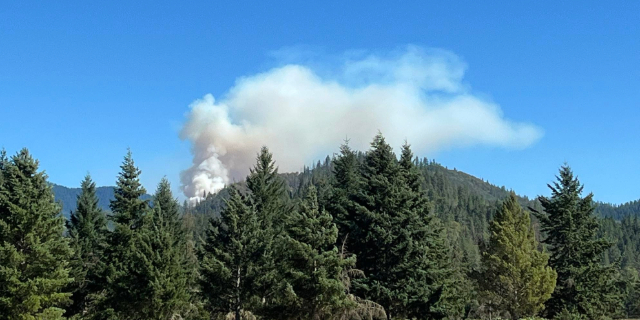Local veteran finds shelter in Bend after years of struggle
Published 5:00 am Sunday, July 17, 2022

- John Steele, 71, stands out front of his cabin at Central Oregon Veterans Village in Bend on July 7, 2022.
U.S. Army veteran John Steele struggled for years to get help before fellow veterans came to his aid.
Trending
In the dead of winter last year, with temperatures dropping to below 20 degrees, Debbie Restivo found the 71-year-old curled up in a sleeping bag on the sidewalk near an emergency shelter on Second Street in downtown Bend. It had been a few weeks since the two last spoke at a local church. Restivo could immediately tell Steele’s health was deteriorating rapidly. He was hunched over, used a cane to walk and had difficulty breathing.
“It almost felt like he was hopeless, that he’d given up,” Restivo said.
At that point, Steele was living out his days in a broken-down van in the Deschutes National Forest, staying away from people when ever he could.
Trending
“If you’re not around people, you can’t get hurt,” said Steele, who has post-traumatic stress disorder.
But Restivo, a veteran who works for Central Oregon Veterans Outreach, a nonprofit that serves homeless veterans, told him that he deserved help because of his veteran status. At first, he didn’t trust her, but as the conversation continued, he “took a leap of faith,” she said.
“It was the first time I felt that somebody was listening,” Steele said of his time with Restivo.
Steele is one of at least 190 homeless veterans who have been contacted by the outreach service in Central Oregon since May 2021.
Homeless veterans face a unique set of barriers that hinder them from receiving the help they need, according to staffers with Central Oregon Veterans Outreach. For combat veterans, lingering trauma can make it overwhelming to navigate housing, medical services and benefits through the U.S. Department of Veterans Affairs. Some turn to drugs or alcohol to cope. And the pride — or lack thereof — that stems from serving in the armed forces can serve for some veterans as a deterrent from seeking assistance.
The latest Point-in-Time Count from the Homeless Leadership Coalition showed that the number of veterans experiencing homelessness in Central Oregon increased by more than 50% between 2020 and 2021, from 59 people to 89. That number, however, is likely low because many veterans who experience homelessness might not wish to disclose their status due to the stigma around getting help, according to COVO staffers.
To Restivo, Steele’s story reflects the challenges of many unhoused veterans who she meets on a weekly basis, including a distrust of authorities after years where the institutions he represented did not serve him. Now, Steele is staying in one of the transitional shelters at the Central Oregon Veterans Village in Bend, which opened in November, making goals to try and get back on his feet.
“With veterans, we put our lives on the line for people,” he said. “Without us, the thoughts of being free is not so much true … When it comes to getting support, we get very little of that from the government.”
Steele served in the Army from 1971 to 1988. He was stationed in Korea, Belgium and Germany. For the first five years of his service, he served in combat arms on the east-west border of Germany during the Vietnam War as the U.S. military protected the border from possible Russian invasion. He concluded his service at the Fort Lewis Army Base in Washington.
After his military service, Steele went to trade school in Tacoma, Washington. Then, he worked in computer-based training with Boeing and as a car salesman before taking a job as a counselor on McNeil Island in Washington, a facility that houses the state’s most dangerous sex offenders.
The grim nature of the job left Steele physically and mentally broken. And to make matters worse, he contracted Hepatitis C, and his medication dramatically altered his thoughts and feelings. Then, the Social Security Administration ended his long-term benefits, sending his mental health into a spiral. His struggles escalated into a fight with his son and domestic violence issues that landed him in jail. He was convicted of third-degree assault.
When he was released on probation, Steele was evicted from his apartment and filed for bankruptcy, making it all but impossible to get housing. He asked the U.S. Department of Veterans Affairs for help, but they told him there wasn’t anything they could do, he said. That’s how Steele began living out of his van in towns throughout Washington.
Steele eventually decided to return to Bend, where he had spent nine years of his youth and his parents were buried. Soon, he connected with JW Terry, the executive director for Central Oregon Veterans Outreach, who helped him meet a caseworker to help him find shelter and get back on his feet. Not long after, he met Restivo, who helped him move out of a shelter, into a hotel and then into the transitional shelter in the Veterans Village. Though he was long reluctant to accept help, he’s come to trust the staff at the Veterans Village.
“If it wasn’t for her persistence, I would probably be out on the street,” Steele said, adding: “One of the things that I found when I finally decided to come to the village here was that they were more willing to help than the common homeless person realized.”
Among Steele’s goals, taking care of his medical needs through the local VA. Restivo’s goal for him is to get his own apartment. And one day, he wants to drive a Harley Davidson motorcycle across the country, dreaming of visits to Bourbon Street in New Orleans, New York City, Chicago, the Grand Canyon and a wolf rescue area by the Sioux Reservation in New Mexico.
He said, “We have hopes and dreams, the same as anybody else.”
Who are the real people impacted by skyrocketing housing prices, decisions about homeless shelters or plans to sweep informal camps? The Bulletin wants to offer insight by telling their stories through the series Faces of Homelessness. Every two weeks this year, Bulletin reporters will introduce readers to a different homeless person. We are here to tell their stories.
For suggestions on how to help the region’s residents experiencing homelessness, contact the Homeless Leadership Coalition by email at info@cohomeless.org.









